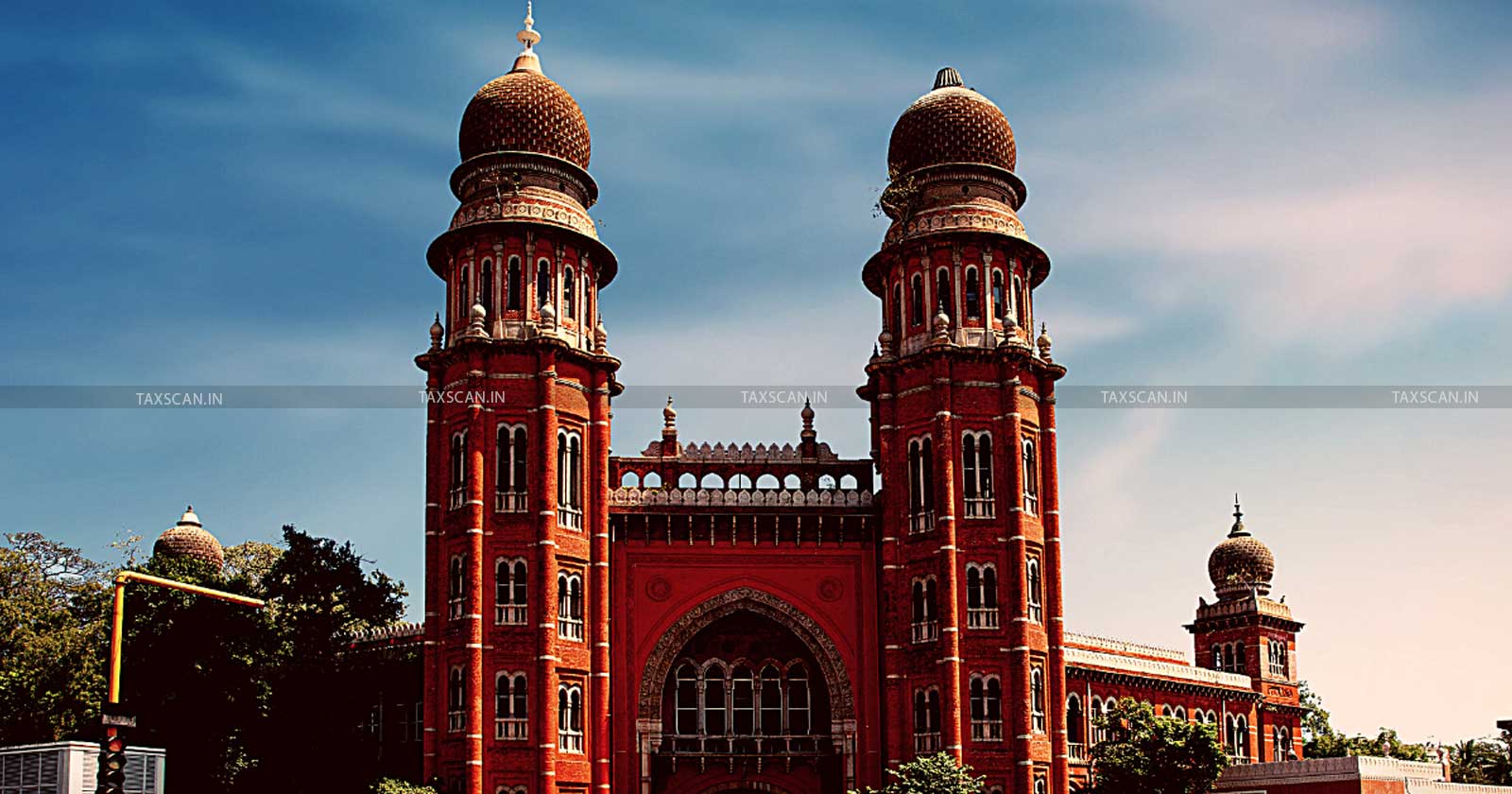GST Payer alleges Overlap of Jurisdiction by Central and State Authority: Madras HC says No Case Made Out, Grants Partial Relief [Read Order]
The court set aside the order conditionally, permitting the petitioner to file a fresh reply and additional documents, but only if the petitioner deposits 25% of the disputed tax amount within thirty days
![GST Payer alleges Overlap of Jurisdiction by Central and State Authority: Madras HC says No Case Made Out, Grants Partial Relief [Read Order] GST Payer alleges Overlap of Jurisdiction by Central and State Authority: Madras HC says No Case Made Out, Grants Partial Relief [Read Order]](https://images.taxscan.in/h-upload/2025/07/10/2062245-gst-gst-payer-alleges-overlap-of-jurisdiction-by-central-and-state-authority-jurisdiction-taxscan.webp)
In a recent order, the Madras High Court observed the petitioner’s plea alleging overlapping jurisdiction between the Central and State GST authorities, ruling that the facts did not support the claim and directing the petitioner to comply with statutory conditions to contest the assessment afresh.
However, the court noted that the assessee’s reply to the notice was not considered by the GST department, which required it to be addressed. It granted partial relief considering the procedural lapse.
The writ petition was filed by M/s IRISH Health Care, represented by its proprietor Selvam, challenging an assessment order dated 30.04.2024 passed by the Deputy State Tax Officer for the 2018-19 assessment year.
The company claimed that the same dispute had already been addressed by the Central GST Authority through an order dated 05.12.2023, leading to an overlap in proceedings.
The petitioner argued that the overlapping proceedings violated the scheme of the GST Act, which clearly demarcates the jurisdiction of Central and State tax authorities to avoid dual assessments for the same tax period.
Comprehensive Guide of Law and Procedure for Filing of Income Tax Appeals, Click Here
 Also Read:Business Closed, Unaware of GST Notices: Madras HC allows to Contest Order on Payment of Dues without Interest and Penalty [Read Order]
Also Read:Business Closed, Unaware of GST Notices: Madras HC allows to Contest Order on Payment of Dues without Interest and Penalty [Read Order]
However, Justice C. Saravanan noted that on the facts presented, no substantial overlap was demonstrated. The Court pointed out that the order of the Central authority dated 05.12.2023 related to the tax period from 1st July 2017 to 31st March 2018, whereas the State order under challenge pertained to the assessment year 2018-19, covering the same period but arising under distinct notices and proceedings.
The petitioner had already filed an appeal before the Appellate Commissioner on 10.05.2024 with respect to the earlier order, and no substantive conflict was shown that would render the State proceedings invalid.
The bench noted that while the petitioner did file a reply to the Show Cause Notice (DRC 01) dated 01.02.2023, the reply was not discussed in detail in the impugned order. Finding this to be a partial lapse in procedure, the Court offered limited relief.
It set aside the order conditionally, permitting the petitioner to file a fresh reply and additional documents, but only if the petitioner deposits 25% of the disputed tax amount within thirty days.
The Court directed that on such compliance, the State Tax Officer shall pass fresh orders on merits and after providing the petitioner a fair opportunity to be heard, within three months. If the petitioner fails to comply with the deposit condition, the Department was directed to proceed with recovery as if the writ petition had been dismissed at the outset.
With these directions, the writ petition was disposed of, confirming that no clear case of overlapping jurisdiction had been made out on record but upholding the taxpayer’s right to due process before final adjudication.
Support our journalism by subscribing to Taxscan premium. Follow us on Telegram for quick updates


